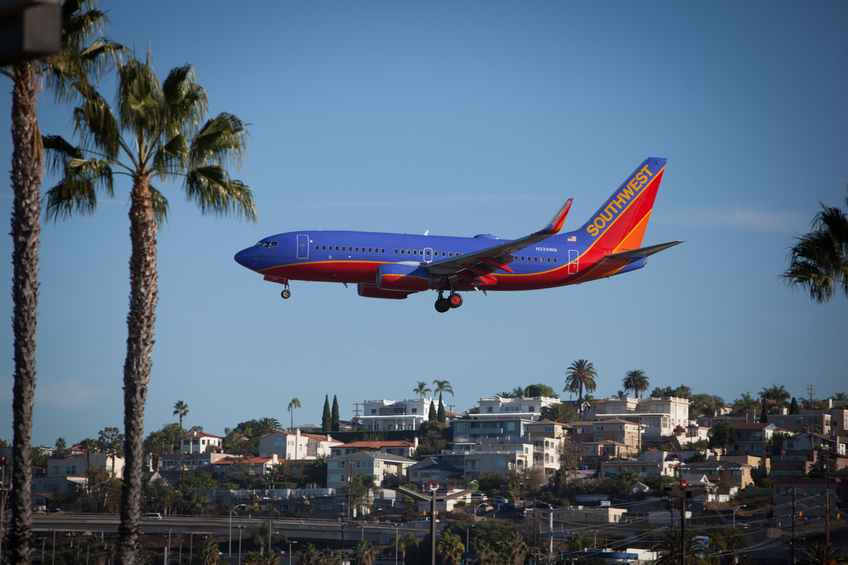 Fed up with state and local laws that require private employers to offer paid sick days, the airlines and railroads have filed suit, claiming that the interstate nature of their businesses should make them exempt.Airlines for America, a trade group that includes American Airlines Group Inc., United Continental Holdings Inc., FedEx Corp. and United Parcel Service Inc., is asking judges in Washington and Massachusetts to exempt the airlines from the state laws, which provide for paid sick leave for all workers. CSX Corp. has also filed in Massachusetts, saying that the state law is overruled by a federal railroad rule that forbids local interference.This may just be the beginning, said Michael J. Soltis, a Connecticut employment lawyer and part-time faculty at the law school at Quinnipiac University. “If they get some measure of success here, you've got to believe they would march it around the country to all the jurisdictions.”The U.S. is the only industrialized country that doesn't require companies to provide paid sick leave for employees. Many do it anyway, either as a matter of corporate policy or because they're subject to one of the 40 state or local laws that have cropped up in the absence of a federal mandate. As a result, roughly two out of three private-sector workers are eligible for at least some paid sick time, according to the Bureau of Labor Statistics.
Fed up with state and local laws that require private employers to offer paid sick days, the airlines and railroads have filed suit, claiming that the interstate nature of their businesses should make them exempt.Airlines for America, a trade group that includes American Airlines Group Inc., United Continental Holdings Inc., FedEx Corp. and United Parcel Service Inc., is asking judges in Washington and Massachusetts to exempt the airlines from the state laws, which provide for paid sick leave for all workers. CSX Corp. has also filed in Massachusetts, saying that the state law is overruled by a federal railroad rule that forbids local interference.This may just be the beginning, said Michael J. Soltis, a Connecticut employment lawyer and part-time faculty at the law school at Quinnipiac University. “If they get some measure of success here, you've got to believe they would march it around the country to all the jurisdictions.”The U.S. is the only industrialized country that doesn't require companies to provide paid sick leave for employees. Many do it anyway, either as a matter of corporate policy or because they're subject to one of the 40 state or local laws that have cropped up in the absence of a federal mandate. As a result, roughly two out of three private-sector workers are eligible for at least some paid sick time, according to the Bureau of Labor Statistics. Patchwork Laws
The airlines say the motley nature of local laws makes it impossible and impractical for them to conform. In the suit, the airlines said a flight crew could be in several different jurisdictions during the course of a single flight. The Massachusetts suit, filed in April, says that one airline has already closed an unidentified flight attendant base in an unnamed jurisdiction because of the added cost of paid sick-leave laws there.“These state and local laws are designed for employees working in traditional office environments, working 40 hour weeks, five days per week in a single jurisdiction,” Vaughn Jennings, a spokesman for Airlines for America, said in an e-mail. “Airline flight crews routinely operate in multiple states in a single day, rarely spend much time in any one state, and spend the majority of their time in federal airspace.”The flight attendants union, which represents 50,000 flight attendants at 20 carriers, and a half-dozen railroad employee union groups support the state laws and say they oppose the airline association's position.“As long as airlines operate in the state, they are subject to state laws,” Sara Nelson, president of the Association of Flight Attendants-CWA, said in a statement. “This is not the first time a local or state law has affected the industry. We will fight this misguided lawsuit to ensure flight attendants receive this benefit under the law.”
Seeking Uniformity
Like the rest of the business lobby, the airlines say they want uniform, nationwide regulation. Not long ago, the Society for Human Resource Management put forward a proposed national policy that would encourage companies to provide paid sick leave but not require it. The proposed law remains under review in a House committee.The railroads say they are regulated by one, uniform federal law -- one that provides railroad workers with paid sick time after the fourth day of illness. According to the lawsuit, that law also specifically bars states from adding to the requirements. The First Circuit Court of Appeals in Boston has ruled in favor of CSX in at least part of their argument, and a lower court has been asked to review other aspects of the law, Soltis said.CSX had no additional comment. The railroad unions also are not commenting while the case is pending, according to a spokesman.San Francisco was the first municipality to adopt a paid sick-day law in 2006, and Connecticut passed the first state law five years later. Eight states, including California, now have similar regulations. Legislation in Rhode Island and New Jersey will take effect this year.For the most part, companies have reacted to the patchwork legislation by offering more days than the most strict laws requires, said Terri Rhodes, chief executive officer for the Disability Management Employer Coalition, which represents employees and vendors who coordinate employee absence policy.“They're not trying to get out of it, but they they would like to see some consistency,” Rhodes said. “Companies are trying to attract the best talent and that's driving them to offer better sick-day policies on their own.”
© Touchpoint Markets, All Rights Reserved. Request academic re-use from www.copyright.com. All other uses, submit a request to [email protected]. For more inforrmation visit Asset & Logo Licensing.






